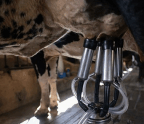'Outtakes': Former NPR producer's new book takes readers behind the scenes and around the world

Here & Now‘s Scott Tong speaks with longtime NPR producer Peter Breslow about his new book “Outtakes: Stumbling Around the World for NPR” where he shares memories of his 39 years working for the network including trips to Iraq, Somalia and Ecuador.

Peter Breslow is the author of “Outtakes.” (Courtesy of Peter Breslow)
Book excerpt: ‘Outtakes: Stumbling Around the World for NPR’
By Peter Breslow
Afghanistan January 2002
Scott Simon and I left the U.S. for Kabul on the day that Wall Street Journal reporter Daniel Pearl was kidnapped by militants in Pakistan, so we were a bit on edge. The tension increased when we realized that one of our soon-to-be departing housemates in Kabul was the Journal ’s regional correspondent. They were pulling him out for safety reasons.
Scott and I wondered if the terrorists might have already zeroed in on him and his room in our
You’re reading a preview, subscribe to read more.
Start your free 30 days



